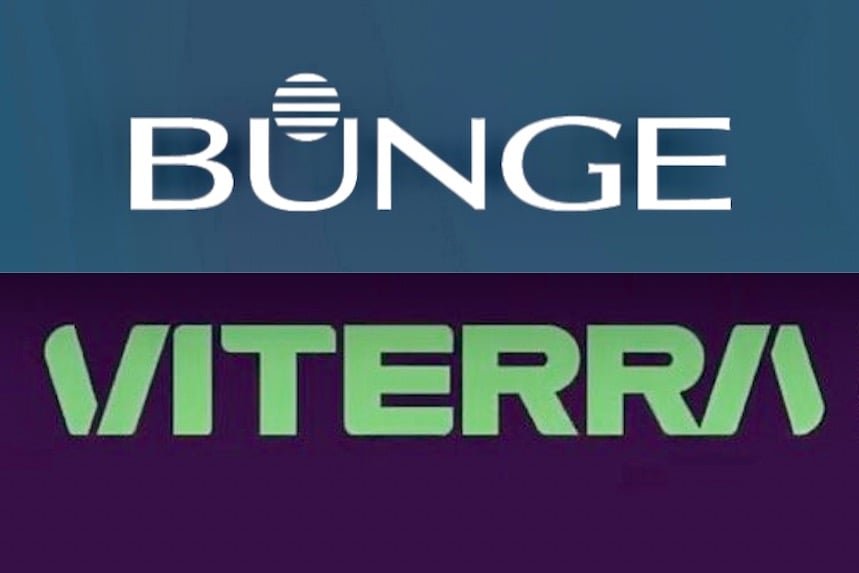Bunge waits for merger decision

Bunge is confident it will gain Canadian regulatory approval of its attempt to acquire Viterra.
Most jurisdictions where the companies operate have already approved the US$34 billion deal. Canada is one of the last ones remaining.
“We continue to engage with the Government of Canada and expect to address questions and close out all issues in the near term,” Daiana Endruweit, Bunge’s head of global communications, said in an email.
“Based on what we know, we expect the transaction to be concluded in the coming months.”
Canada’s review was initiated by federal Transport Minister Pablo Rodriguez, who felt the proposed merger raises public interest issues related to national transportation.
Transport Canada said it has submitted its Public Interest Assessment to Rodriguez for his review. The document is not being made public because it contains commercially sensitive material.
Transport Canada spoke with Canada Port Authorities, grain companies, rail and marine transportation companies and some provincial governments to gather their views on the acquisition.
The minister is also reviewing a report filed by the Commissioner of Competition on April 22.
The commissioner determined that the proposed transaction is likely to result in “substantial anti-competitive effects” due to the “significant loss of rivalry” between Bunge and Viterra in a number of markets.
A lot of his concerns surround Bunge’s minority interest in G3 Global Holdings.
The commissioner felt that Bunge is likely able to “materially influence” G3 through its minority interest and its ability to access G3’s confidential information and influence its economic behaviour.
The commissioner said the transaction is likely to result in a “substantial lessening of competition” between Bunge and Viterra as well as G3 and Viterra for the purchase of canola in certain markets in Western Canada.
The commissioner is also worried about “substantial anti-competitive effects” with respect to the sale of canola oil in Eastern Canada to customers who cannot receive oil by rail.
Bunge and Viterra have been asked to address the commissioner’s concerns and to identify any measures they are prepared to undertake.
“Following completion of this process, the Minister of Transport will make a recommendation to the Governor in Council (i.e. Cabinet) on whether the proposed acquisition should be approved, approved with conditions or disallowed,” Flavio Sachett Nienow, communications adviser for Transport Canada, said in an email.
“Once the Governor in Council makes a decision based on the recommendations from the Minister of Transport, an explanatory note to the public will be published online. Transport Canada is committed to conducing regulatory processes as quickly as possible.”
Some farm groups have expressed concerns about the merger.
The Agricultural Producers Association of Saskatchewan commissioned a study by three University of Saskatchewan academics, which found that the merger could increase the export basis by 15 per cent and crush margins by 10 per cent, resulting in a $770 million net annual loss to farmers.
Bunge chief executive officer Greg Heckman responded to that study in an op-ed piece, saying the findings were based on false assumptions and incomplete data.
For instance, a fundamental assumption of the academics’ model was that the merged enterprise would operate the G3 and Viterra grain export capacities as a single firm, which Bunge says is “objectively false.”
“It would violate G3’s fiduciary obligations to its shareholders and likely violate Canadian competition law,” Heckman said in his op-ed piece.
“It simply doesn’t make sense and it’s plain wrong.”
Bunge has had to make concessions in other jurisdictions where it operates.
For instance, the European Commission recently approved the merger after the merged firm committed to divesting its oilseeds businesses in Hungary and Poland along with some logistical assets.
Read also
Wheat in Southern Brazil Impacted by Dry Weather and Frosts
Oilseed Industry. Leaders and Strategies in the Times of a Great Change
Black Sea & Danube Region: Oilseed and Vegoil Markets Within Ongoing Transfor...
Serbia. The drought will cause extremely high losses for farmers this year
2023/24 Safrinha Corn in Brazil 91% Harvested
Write to us
Our manager will contact you soon



